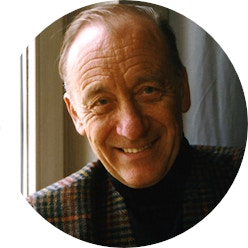
Rodion Konstantinovich Shchedrin
16 de diciembre de 1932 - Moscú (Rusia)
© Peter Andersen
Acerca de
Rodion Shchedrin was born in 1932 in Moscow into a musical family: his father was a composer and a teacher of music theory. He studied at the Moscow Choral School and in 1955 he graduated from the Moscow Conservatory where he studied composition and piano. His first major works were written in his early twenties. Never a member of the Communist Party, at the collapse of the Soviet regime Shchedrin was able to participate more fully in musical life world-wide. He now divides his time between Munich and Moscow. A virtuoso pianist, Shchedrin has often performed his own works, which include five concertos for piano and orchestra, sonatas and 24 preludes and fugues for piano. For over a decade he spent lot of his time and energies on heading the Russian Federation of the Union of Composers having succeeded its founder, Dmitri Shostakovich at the request of Shostakovich. In his opera Dead Souls and the ballet Anna Karenina, he introduced classics of Russian literature to musical theatre. All were performed at the Bolshoi Theatre, making Shchedrin the first composer to have had seven works staged there in its 200-year history. Shchedrin’s choral works, set to texts of Russian poets, are widely performed, as are his two symphonies and five concertos for orchestra. In 1992 President Boris Yeltsin awarded Shchedrin the Russian State Prize for his work “The Sealed Angel”. Shchedrin has succeeded in synthesising traditional and new forms by using every contemporary technique of composition including aleatoric and serial. His attraction to Russian folklore and folk music, Russian poetry and literature, is strongly evident in his oeuvre, making him a pre-eminently Russian composer with a voice that nevertheless speaks to all humankind. Since 1989 Shchedrin is member of the Berlin Academy of Arts.
Rodion Shchedrin has received numerous prizes and awards. In 1983, he was made the honorary member of the Academy of the Fine Arts in the German Democratic Republic, two years later a honorary member of the International Music Council and in 1989 a member of the Academy of the Arts in Berlin. In 1992, the Russian President Boris Jelzin awarded the composer the State Prize for his choral work The Sealed Angel. A year later, Shchedrin received the Dmitri Shostakovitsch Prize and in 1995 the Crystal Award of the World Economic Forum in Davos. In 2002, he was named as Composer of the Year by the Pittsburgh Symphony Orchestra. In the same year, he was presented with the Russian Federation State Order. In 2005, he was created as honorary professor at the St. Petersburg Conservatory and in 2008 at the Central Conservatory of Music in Beijing. Rodion Shchedrin was awarded the Russian State Order 2nd Class “for services to his country” in 2007.

